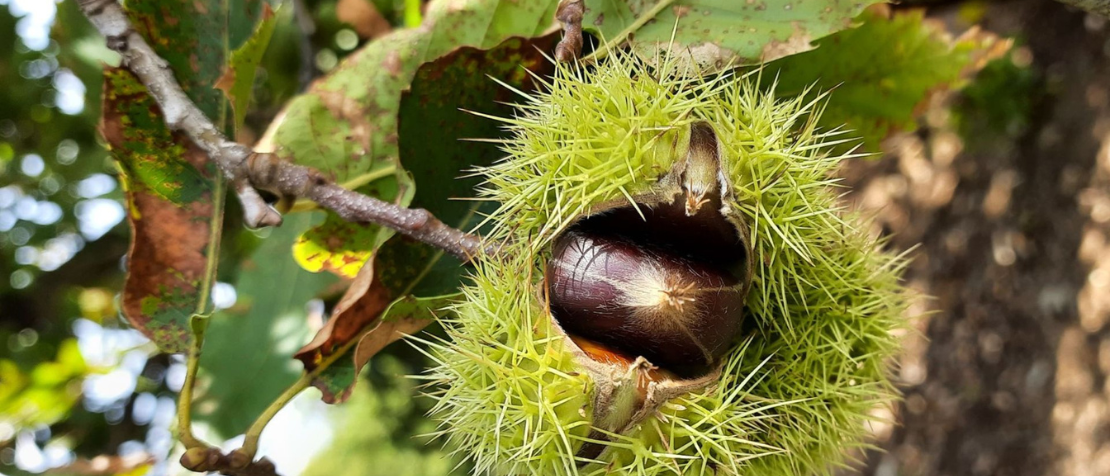Using one wasp to fight another: FAO establishes biological control plan to protect Albanian chestnuts

©FAO
Threats posed by infestations of Asian chestnut gall wasps have cast a vast shadow over the chestnut-growing regions of Albania.
This invasive pest, scientifically known as Dryocosmus kuriphilus, poses a significant danger to chestnut trees. The larvae of these wasps cause the formation of damaging growths, or galls, on chestnut trees, reducing fruit production by up to 70 percent.
However, one promising solution involves the use of parasitoid wasps such as Torymus sinensis to control the pests. Torymus sinensis adults lay their eggs in the larva of Asian chestnut gall wasps, keeping them from developing and thus from damaging chestnut trees.
The release of parasitoids has been shown to be the most effective and sustainable measure in maintaining Asian chestnut gall wasp populations, because chemical measures are not proven to be effective and environmentally sound.
FAO, through its global One Country One Priority Product programme, has launched a project to support Albania in implementing a comprehensive programme to monitor Asian chestnut gall wasps, prepare a biological control plan and build capacity among local farmers and extension officers.
With support from a national entomologist, FAO assessed and confirmed the presence of Torymus sinensis in the cities of Tropoja, Malesi e Madhe, Tirana and Elbasan – meaning that biological control efforts can begin without having to import the beneficial insects from abroad. The greatest numbers of Torymus sinensis were found in Lekbibaj, Shengjergj and Gri.
“The identification of Torymus sinensis in the country marks a significant advancement,” said Agim Pepkolaj, the project manager for FAO Albania, “and promises not only to control Asian chestnut gall wasp with sustainable solutions but also to support a sustainable chestnut ecosystem with high socioeconomic impact to farmers living in disadvantaged mountain areas of Albania.”
With support from the Ministry of Agriculture of Albania, FAO is designing a biological control programme and preparing practical guidelines for the collection, keeping, breeding and release of parasitoid wasps. Dried galls containing Torymus sinensis larvae are collected and kept in climate-controlled chambers until the time for their release in chestnut-growing areas.
FAO also is establishing a field lab for storing, rearing, and releasing Torymus sinensis and monitoring the impacts of the programme.
The planned biological control programme marks a major milestone in efforts to safeguard chestnut trees in Albania. Through this programme, FAO remains committed to advancing environmentally friendly and sustainable solutions to boost chestnut health, increase production and offer economic results for chestnut growers in Albania.
